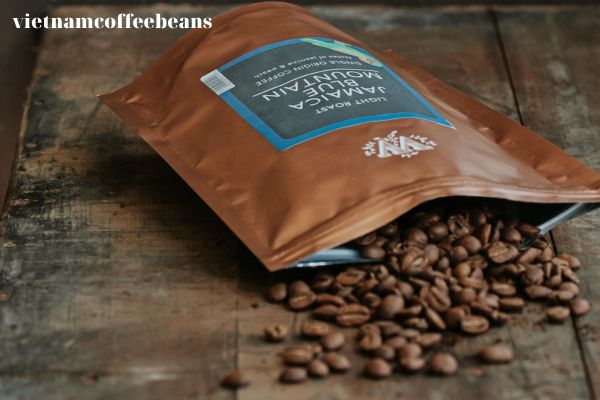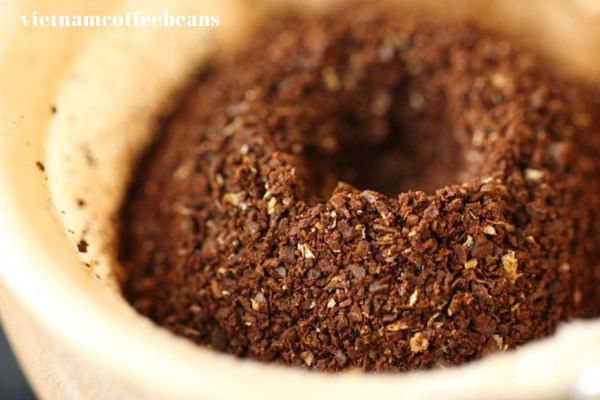Jamaican Blue Mountain Coffee refers to the premium coffee grown in the Blue Mountains of Jamaica. This Arabica variety, called Typica, was originally introduced to the island in 1728.
Typica hails from southwestern Ethiopia and lends Jamaican Blue Mountain Coffee its signature mild, smooth flavor profile, without bitterness. Over recent decades, this exquisite coffee has gained global renown as one of the most desirable and expensive coffees worldwide.
More than 80% of the Jamaican Blue Mountain Coffee crop is exported to Japan to meet demand. The beans also flavor the popular Tia Maria coffee liqueur, highlighting their versatile appeal.
Key Takeaways
- This has a unique flavor and luxurious reputation, attributed to its ideal growing conditions in the Blue Mountains of Jamaica, hand-picking of only the ripest beans, and crucial roasting process.
- It has a rich history dating back to the 1700s and is renowned for its smooth, complex flavor, with Grade 1 commanding the highest price range of $50-$90/lb due to its rarity.
- Conservation efforts are required to protect the coffee’s unique flavor, including measures to protect the birds that live in the area, such as over 100 bird species monitored by the Jamaica Audubon Society and planting native trees that provide food and shelter for birds.
- This industry also enforces a strict No Hunting policy on all farms to maintain sustainability.

What is Jamaica Blue Mountain Coffee?
True Jamaican Blue Mountain Coffee refers specifically to the rare Arabica Typica beans grown exclusively in Jamaica’s pristine Blue Mountain region. This restrictive geographic origin is what defines real Blue Mountain Coffee and makes it so highly prized.
The singular microclimate and volcanic soil of the Blue Mountains produce an exceptional coffee cherished for its quality, rarity, and one-of-a-kind flavor profile. No other coffee can claim the Jamaican Blue Mountain pedigree and attributes. Only beans from this single Jamaican region can be designated as the unique, nuanced Blue Mountain variety.
Its limited cultivation area and superb flavor ensure Jamaican Blue Mountain Coffee maintains its reputation as one of the rarest and most desirable coffees in the world.
Orgin and History of this Luxurious Coffee
Ironically, Jamaica’s famed Blue Mountain coffee originates elsewhere. In 1723, coffee plants were gifted to Martinique. One plant was then brought to Jamaica in 1728, sparking mass cultivation.
Jamaica became the world’s top coffee exporter from 1800-1840. But production declined after slavery’s abolition in 1838 caused plantation closures. In the 1950s, the Jamaican Coffee Industry Board instituted regulations defining real Blue Mountain coffee.
Only beans from the Blue Mountain parishes of Saint Andrew, Saint Thomas, Portland and Saint Mary can be designated as authentic Jamaican Blue Mountain coffee. The JCIB created strict growing and marketing standards to protect the quality and reputation of this cherished agricultural product.

Growing Conditions in the Jamaican Blue Mountains Coffee
Jamaica Blue Mountain Coffee thrives in the precise conditions of the Blue Mountains of Jamaica. This range exceeds 7,402 feet elevation and is blanketed in lush rainforest, creating an ideal cool, humid coffee-growing climate. The mountain’s enriching organic soil also boosts bean quality.
Farmers adhere to fair trade practices like fair wages and sustainable farming to produce the finest beans. Careful harvesting and processing maintain the beans’ flawless flavor. The Blue Mountains offer the perfect intersection of climate, soil and ethical production to cultivate these exceptionally flavorful coffee beans.
Production Process
Reaping the perfect drink requires a delicate production process, like a masterful artist carefully crafting a masterpiece. This is no exception to this rule, as it is carefully grown in Jamaican’s Blue Mountains and the production process is highly regulated.
The specialty farming process begins with coffee beans being hand-picked, with only the ripest beans being selected for use. This is important because the beans’ ripeness impacts the flavor of the coffee.
Once the beans have been selected, they are transferred to a roasting facility and prepared for it. The techniques vary from producer to producer, but there are certain standards that must be met in order to ensure the highest quality coffee is produced.
The process is crucial for bringing out the unique flavor profile of this. With the right technique, the beans will develop the smooth, balanced flavor that is characteristic of this coffee. Once the process is complete, the beans are packaged and ready to be enjoyed.
The flavor profile is unlike any other coffee in the world, and its unique taste is a reflection of the production process. From the careful selection of the beans to the specialized techniques, everything about the production is designed to bring out its best flavor.
As a result, the coffee is highly sought after and highly valued. Moving forward, we will explore how the unique flavor profile sets it apart from other coffees.
Unique Flavor Profile Of Jamaica Blue Mountain

Jamaica coffee is renowned for its exceptional sweetness and full body. The complex yet balanced flavor profile features hints of chocolate, sweet herbs, and florals, with a nutty overtone.
This coffee is best known for its mild, classic taste and silky-smooth texture. It has a bold, enticing aroma and clean, bitterness-free taste that keeps drinkers coming back. The melody of flavors and velvety feel make Jamaica coffee a sensory delight.
The unique flavor is the result of careful crafting and the perfect combination of:
- Brewing Methods:
- The optimal brewing methods for Jamaican Blue Mountain coffee beans emphasize their nuanced flavors without increasing acidity. A French press or pour-over allow adequate steeping time to draw out the beans’ distinctive notes.
- Proper grind size is also key, as the wrong consistency can negatively impact the brew. When used with the right grind, French press and pour-over immersion techniques unlock the full flavor potential of these exceptional beans. The high quality Jamaican coffee truly shines when brewed with care using these optimal extraction methods.
- Roasting Methods:
- Roasting is a vital factor in brewing quality coffee. Due to their delicate balance of flavors and lack of bitterness, Jamaican Blue Mountain coffee beans achieve peak quality with a medium or medium-dark roast.
- This roast level allows the nuanced flavors and fragrances of the beans to fully develop without compromising their inherent quality. A medium roast strikes the perfect balance for Jamaican coffee, unlocking its full potential of aroma and taste. The right roasting accentuates these beans’ distinctive profile without diminishing their signature smoothness.
All of these steps come together to give its unique flavor profile. This coffee is truly one-of-a-kind, and its popularity is evidence of its quality.
Price and Availability
Previously, we discussed the rise of popularity, and now we’ll explore the price and availability of this premium brew. As you can expect, this coffee is rare and therefore pricey. The table below provides an overview of the current price points.
| Quality Grade | Price Range |
|---|---|
| Grade 1 | $50-$90/lb |
| Grade 2 | $30-$50/lb |
| Grade 3 | $20-$30/lb |
Buying trends show that Grade 1 is the most sought after quality grade and therefore commands the highest price. However, Grade 2 and Grade 3 are still quite popular and offer great value for money. The blue mountain blend is in high demand and limited supply, so it often sells out quickly and costs a premium price
This is an advantage for those who want to enjoy the unique flavor of this coffee without shelling out too much money. With an understanding of the price points and buying trends, we now move to the next topic of conservation efforts.
Conservation Efforts
With its rarity and popularity, conservation efforts to protect the unique flavor of this brew are of paramount importance. This is grown in a sustainable, organic farming environment, making it a truly unique and treasured product.
Additionally, the coffee farmers have taken measures to ensure the birds that live in the area are also protected:
- Over 100 bird species are monitored by the Jamaica Audubon Society
- Coffee farms are planted with native trees that provide food and shelter for birds
- A strict “No Hunting†policy is enforced on all Jamaican farms
These efforts ensure that this unique coffee is kept safe and that its unique flavor is preserved for generations to come.
Frequently Asked Questions
Conclusion
We’ve learned a lot about Jamaican Blue Mountain Coffee. It’s a unique, luxurious coffee with a flavor profile unlike any other. It’s popularity is undeniable, and it’s available for purchase if you’re willing to pay the high price. Conservation efforts are in place to ensure that Blue Mountain coffee is around for generations to come.
That being said, some people may be reluctant to buy Blue Mountain coffee due to its cost. But we believe that the flavor and experience of this amazing coffee is well worth the price. Plus, with proper conservation we can continue to enjoy its unique taste for many years to come.
Hope you get useful information from the article, if you have any questions or want to read more articles, please visit the website: vietnamcoffeebeans
Thank you!






